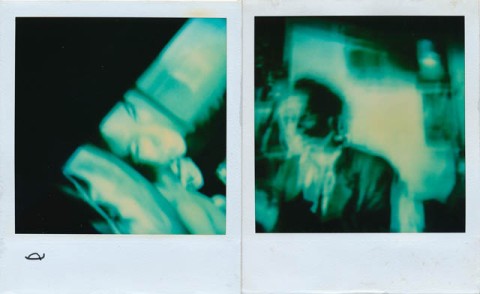Even before the water came, he was having trouble with the book. His characters took lives of their own, and then took their own lives—suicide by drowning or self-immolation. He was left again to stare again at blank pages.
On the day of the flood, before his real-life troubles were fully upon him, he and his wife Rose-Marie had grinned secretly. It was the novelty of stepping into their favorite tales of floods and catastrophes and pirate ships. At the time, they were amused by the cool water lapping at their ankles and the way the curtains pulled water up the walls. By mid-day, their rolled-up pant legs and the rising dampness in the air made them breathe mist and chatter their teeth together. Buckets and mops in hand, they picked electrical things off the floor, like dead lobsters on Ogunquit Beach. Later, with the water swollen around their bed, flush against their wedding duvet, the romance of the matter had tapered off entirely. And the bed, only growing softer, yielded helplessly to the raid of the thick, darkened waters. As Rose-Marie hopped on the bed, he heard her futile giggles on the verge of tears, overcome by the velvet hum of relentless water.
It was Thursday and he realized, with a sudden and wrenching sadness, that he was going to miss his meeting with the Haitian woman. He had rather looked forward to their meetings at the Laundromat, particularly now that the ice had been broken between them. It was a Laundromat used by people from the nearby development projects. They were generally exiled ministers and business men; generals and intellectuals; housewives from Somalia, Cape Verde and Bangladesh. In the laundry bags, mixed together, one saw T-shirts and jeans mingling surreptitiously with the colors of, maybe, a Tamil dance outfit.
A couple of weeks ago he had joked that her accent was so terrible that surely it was invented to make her appear more exotic than everyone else. She was holding a pair of yoga pants and a small shirt in her fists at that time. She wrung the articles of clothing until all moisture was gone, tightening her triceps while she was at it. Her voice seemed to rise an octave, and a pentameter he was previously unaware of curled around her words like a vine. She said, I wonder if anything of what you know about me is true. Then she smiled at him, making him feel more ridiculous than he already did. Afterwards, he was mostly sure she had flirted with him, and fully sure that she had had the better of his presuppositions.
I feel for your peoples troubles, he said, after she introduced herself.
Do you, now? She replied in a way that made him quiet. It also made him feel like a petty liar. I suppose we have to hear all about your feelings now, wont we?
But now he could tell her about his troubles, about him losing his home.
Parity. Maybe, now he would seem less pitiful to her, or at least, pitiable in the right sort of way.
He went back to the flooded bedroom. Rose-Marie had long stopped hyperventilating. Fat streams were still sluicing past sideboards. The water was dissolving his pasteboard book covers, separated from their hard-boiled paper bodies. The books had grown fat with water, and his manuscript was drowned.
The second and the last time he saw her at the Laundromat, he didnt tell the Haitian woman that he had started an eponymous novel using her name. That she had been the seed he had needed to help him find a place to reenter his novel, stalled for months in the horse-winds. But he did not say any of it to her, because he was not really a writer.
In the novel, he would have made her not what she looked like on the street, carrying her huge laundry basket, but how she should have been, in comfortable espadrilles. And in the fictitious novel, the protagonist would tell her how he had fallen in love with her and her strange cargo, but only so long as he could have the right to name her.



 The core workshop of SmokeLong Fitness is all in writing, so you can take part from anywhere at anytime. We are excited about creating a supportive, consistent and structured environment for flash writers to work on their craft in a community. We are thrilled and proud to say that our workshop participants have won, placed, or been listed in every major flash competition. Community works.
The core workshop of SmokeLong Fitness is all in writing, so you can take part from anywhere at anytime. We are excited about creating a supportive, consistent and structured environment for flash writers to work on their craft in a community. We are thrilled and proud to say that our workshop participants have won, placed, or been listed in every major flash competition. Community works.